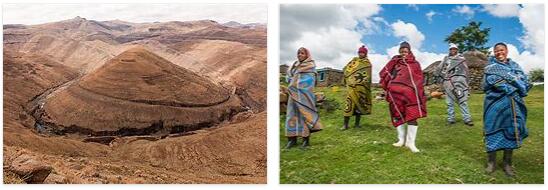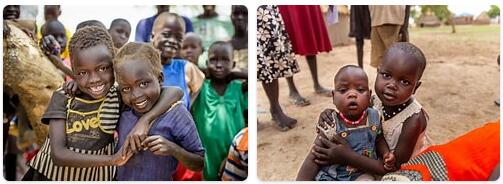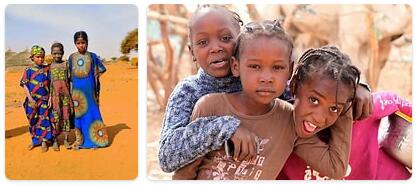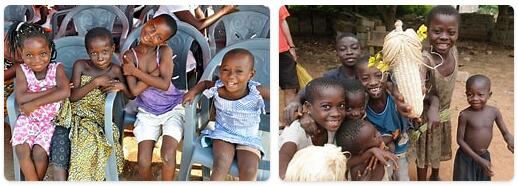Lesotho History
About 25,000 years BC The San, nomadic hunters and gatherers, settled in what is now the state. Of their numerous cave paintings, around 5,000 can still be found in Lesotho. The Sotho nation began to emerge around 850 AD with the arrival of Bantu groups from the Lake Tanganyika region in East Africa. From 1250 the San were displaced by the Sotho and Tswana peoples, also Bantu, so that the first Sotho groups from the north settled in the highlands of today’s kingdom. Numerous kingdoms emerged in the centuries that followed. Around 1820, further Sotho groups gathered in the mountains of what is now Lesotho, those who were before the war expeditions of the Zulu under Chaka had fled. The chief of the Koena clan and later King Moshoeshoe I formed it into a state nation under his rule around 1830. This state, which besides Lesotho included large parts of today’s South African province of Free State, came under increasing pressure from the Boers who weremigrating from the Cape (“Big Trek”). When the military defeat of the Sotho was in sight, Moshoeshoe I requested British protection. After a partial assignment of territory to the Boers, the British Protectorate Basutoland was established on the remaining territory in 1868. Affiliated to the Cape Colony in 1871, Basutoland was again given the status of a protectorate under the direct control of the British Crown in 1884.
In 1919 the first political organization of the educated Sotho was formed, the Lekhotla la Bafo (LLB; Council of the People), which strove for democratic reforms against the colonial power and the chiefs. In 1953 the Basutoland African Congress (BAC) was founded under Ntsu Mokhehle (* 1918, † 1999) and the Protestant elite. The party program included socialist tendencies as well as the fight against the rulers, chiefs, traders and against the Catholic Church. Members were drawn from politically active urban and Protestant classes as well as migrant workers. In 1960 the BAC was renamed the Basutoland Congress Party (BCP). In direct opposition to the BAC, the conservative Basutholand National Party (BNC) was founded in 1959.
On the basis of a new constitution, Great Britain held its first parliamentary elections in 1965. The BNC won with 52% of the vote and their leader, L. Jonathan became the first Prime Minister. On October 4, 1966, Lesotho received independence as a constitutional monarchy under King Moshoeshoe II (* 1936, † 1996).
In the wake of a coup in 1970, Prime Minister Jonathan declared the BCP’s previous election victory invalid and the constitution repealed. A coup attempt by the BCP in 1974 failed. Tensions with the Republic of South Africa, on which Lesotho is economically highly dependent due to its location, arose in 1976 when the government of Lesotho refused to recognize the “independence” of the neighboring Transkei, which the Republic of South Africa had officially dismissed from its state. After a bloodless military coup, Major General Justinus Lekhanya (* 1938) took power at the head of a military council in 1986, initially in cooperation with the king. Different ideas of democracy, however, led to the removal of all incumbents loyal to the king. king Moshoeshoe II, in exile in London since March 1990, was deposed in November 1990 and his son was named Letsie III. enthroned on November 12, 1990. On April 30, 1991, Colonel Elias Phisoana Ramaema (* 1934) overthrew Lekhanya.
With the entry into force of the new constitution, on April 2, 1993, the Military Council transferred its powers to Mokhehle, whose BCP party had won the parliamentary elections in 1993; Mokhehle took over the office of Prime Minister. On August 17, 1994, King Letsie III dismissed . the government suspended the constitution and dissolved parliament, but had to withdraw these measures after international pressure in September. Letsie III. then renounced the throne on January 25, 1995 in favor of his father and predecessor Moshoeshoe II, who had returned from exile in 1993, but was reappointed king on February 7, 1996 after his accidental death.
After the parliamentary elections in May 1998, the new prime minister was Bethuel Pakalitha Mosisili (* 1945), chairman of the Lesotho Congress for Democracy (LCD), which was founded in June 1997 from a splinter group of the BCP. After the government was accused of massive election fraud, the government and opposition agreed in the “Memorandum of Agreement” of 1999 on the formation of an interim council and new elections after serious internal unrest, as a result of which South African and Botswana troops intervened. These finally took place in May 2002; the LCD received the majority of the votes, Mosisili became prime minister again. International observers rated the elections as free and fair. In the parliamentary elections held in February 2007, the ruling LCD emerged victorious by winning 62 seats. There were internal political disputes with the opposition over the election result (general strike). The new government under Prime Minister Mosisili was sworn in on March 2, 2007. He survived an assassination attempt in April 2009.
In February 2012, the LCD split. Prime Minister Mosisili founded the Democratic Congress (DC), which under his leadership became the strongest political force in the parliamentary elections on May 26, 2012 by winning 48 seats, but was nevertheless forced into the opposition. For the first time, a coalition government was formed. According to prozipcodes, the ABC chairman Thomas Motsoahae Thabane (* 1939) replaced Mosisili as head of government. To forestall a vote of no confidence by his coalition partners, Thabane suspended Parliament in mid-June 2014. In August 2014, he fled to South Africa, accusing the army of attempting a coup. After being mediated by South Africa, he returned to Lesotho in September 2014. In order to de-escalate the crisis, the main political forces agreed on early parliamentary elections on February 28, 2015. In these elections, the DC became the strongest political force with 47 out of 120 seats, ahead of the ABC, which had 46 seats. The LDC had 12 seats. On March 17, 2015, Mosisili took over the office of head of government again. He had previously formed a coalition of DC, LCD and smaller parties. On June 25, 2015, General Maaparankoe Mahao (* 1968), who had been dismissed from his post as army chief, became an ally of the man who had fled into exile in South Africa again in May 2015 Thabanes, killed when soldiers loyal to the government were about to arrest him for alleged coup intentions. The SADC set up a commission of inquiry, the final report of which was not accepted by the Lesotho government. Due to the persistent drought, Mosisili declared a state of emergency in December 2015. After several MPs from the ruling coalition defected to the opposition, the opposition successfully filed a motion of no confidence in the government on March 1, 2017. After the dissolution of parliament, early elections were scheduled for June 3, 2017. Instead, the opposition called for Prime Minister Mosisili to resign. T. Thabane, who returned from South Africa in February 2017 led opposition ABC won the elections with 48 seats. The previously ruling DC suffered heavy losses and only won 30 seats. The LCD had 11 mandates. On June 16, 2017, Thabane succeeded Mosisili as Prime Minister and formed a coalition government made up of ABC, BNP, RCL and AD.



